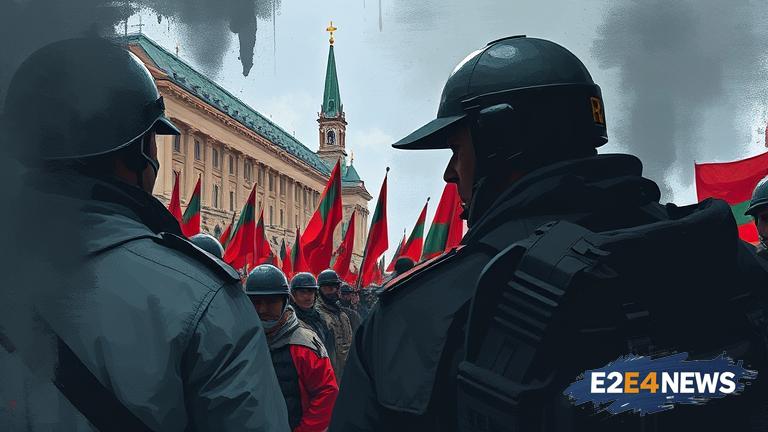The situation in Belarus has been deteriorating over the past few years, with the government increasingly cracking down on dissent and opposition. The country has a long history of authoritarian rule, but the current regime has taken repression to new heights. In recent years, there have been numerous reports of human rights abuses, including arbitrary arrests, torture, and forced disappearances. The government has also implemented strict controls on the media and civil society, making it difficult for independent voices to be heard. Despite these challenges, many Belarusians continue to speak out against the government, with some facing severe consequences for their bravery. The international community has taken notice of the situation in Belarus, with many countries and organizations condemning the government’s actions. The European Union, in particular, has been vocal in its criticism, imposing sanctions on key figures in the Belarusian regime. The United States has also spoken out against the government’s repression, with the State Department issuing numerous statements condemning the human rights abuses. The situation in Belarus is complex and multifaceted, with many different factors contributing to the current crisis. The country’s economy is struggling, with high levels of poverty and unemployment. The government has also been accused of corruption and cronyism, with many officials using their positions for personal gain. The opposition movement in Belarus is diverse and fragmented, with many different groups and individuals working towards change. Some have called for peaceful protests and civil disobedience, while others have advocated for more radical action. The government has responded to these efforts with force, using riot police and other security forces to break up demonstrations and arrest opposition leaders. Despite the challenges, many Belarusians remain committed to the cause of democracy and human rights, and continue to work towards a more just and equitable society. The international community must continue to support these efforts, using all available tools to pressure the Belarusian government to respect the rights and freedoms of its citizens. This includes imposing targeted sanctions, providing support to civil society and independent media, and speaking out against human rights abuses. By working together, it is possible to bring about positive change in Belarus and promote a more democratic and prosperous future for all its citizens.
